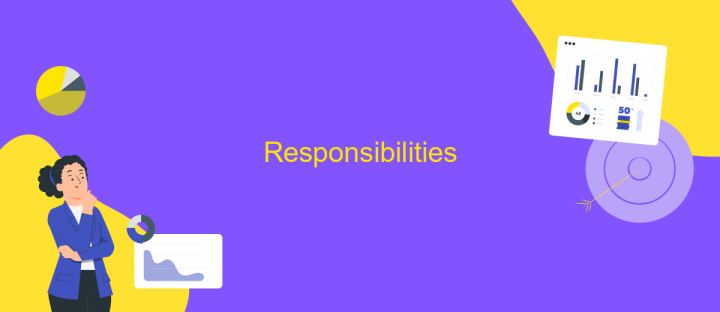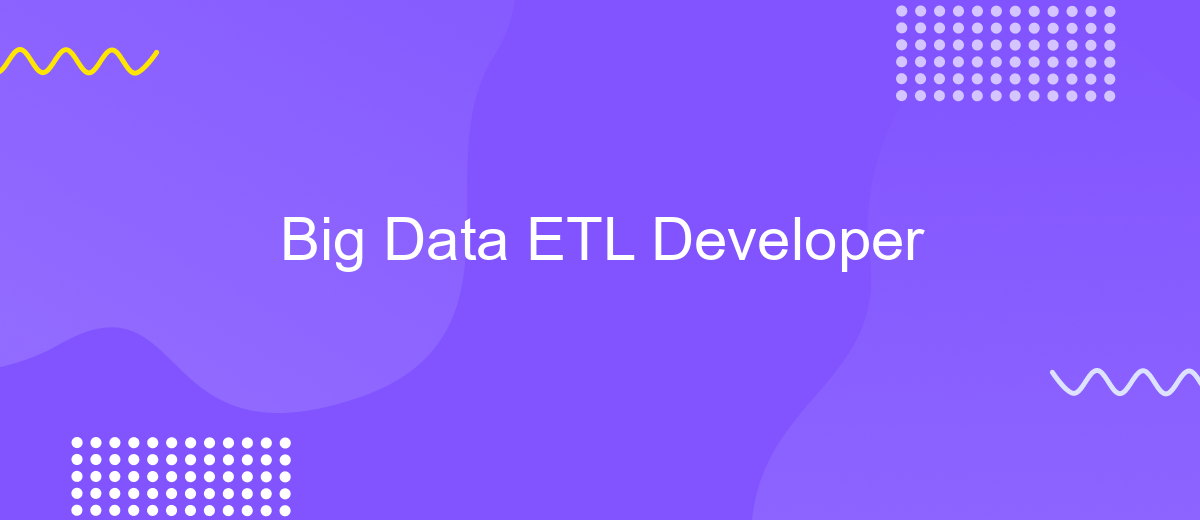Big Data ETL Developer
In today's data-driven world, the role of a Big Data ETL Developer has become increasingly crucial. These specialists are responsible for extracting, transforming, and loading vast amounts of data, ensuring its accuracy and accessibility for analysis. By leveraging advanced tools and techniques, Big Data ETL Developers enable organizations to make informed decisions and gain competitive advantages.
Introduction
In today's data-driven world, the role of a Big Data ETL Developer has become increasingly crucial. These professionals are responsible for extracting, transforming, and loading massive volumes of data from various sources into a centralized data warehouse. Their expertise ensures that data is clean, reliable, and readily available for analysis, enabling organizations to make informed decisions and gain competitive advantages.
- Extracting data from multiple sources such as databases, APIs, and flat files
- Transforming data to meet the specific requirements of the target system
- Loading data into data warehouses or data lakes for further analysis
- Ensuring data quality and consistency throughout the ETL process
- Automating and optimizing ETL workflows for efficiency
One of the tools that can significantly aid in setting up integrations for ETL processes is ApiX-Drive. This service allows seamless integration between various applications and data sources, simplifying the extraction and loading phases. By leveraging such tools, Big Data ETL Developers can streamline their workflows, reduce manual efforts, and focus on more strategic tasks.
Prerequisites

To become a proficient Big Data ETL Developer, a solid foundation in computer science and data engineering is essential. Familiarity with programming languages such as Python, Java, or Scala is crucial, as these are commonly used in data manipulation and pipeline development. Additionally, a good grasp of SQL and database management systems is necessary for efficient data extraction and transformation. Understanding distributed computing frameworks like Apache Hadoop and Apache Spark will significantly enhance your ability to process large datasets.
Experience with cloud platforms such as AWS, Google Cloud, or Azure is highly beneficial, as many ETL processes are now cloud-based. Knowledge of data integration tools and services, like ApiX-Drive, can streamline the process of connecting various data sources and automating workflows. Furthermore, a keen eye for detail and strong problem-solving skills are vital for troubleshooting and optimizing ETL pipelines. Continuous learning and staying updated with the latest industry trends will also help in maintaining a competitive edge in this rapidly evolving field.
Responsibilities

As a Big Data ETL Developer, you will be responsible for designing, developing, and maintaining efficient data pipelines and ETL processes. Your role will involve transforming raw data into valuable insights, ensuring data quality, and optimizing data flow and storage.
- Design and implement ETL processes to extract, transform, and load data from various sources.
- Develop and maintain data pipelines to ensure efficient data flow and storage.
- Collaborate with data analysts and scientists to understand data requirements and provide necessary datasets.
- Ensure data quality and integrity by performing data validation and cleansing.
- Optimize ETL processes for performance and scalability.
- Monitor and troubleshoot data pipelines to resolve any issues promptly.
- Integrate data from multiple sources using tools like ApiX-Drive for seamless data flow.
- Document ETL processes and data flow for future reference and compliance.
In this role, you will work closely with cross-functional teams to deliver high-quality data solutions. Your expertise in ETL processes and tools will be crucial in transforming data into actionable insights, driving business decisions, and enhancing overall data strategy.
Skills and Qualifications

A successful Big Data ETL Developer must possess a robust set of technical and analytical skills. They should have a strong understanding of ETL processes, big data technologies, and data warehousing concepts. Proficiency in programming languages such as Python, Java, or Scala is essential for developing and maintaining ETL pipelines.
In addition to technical expertise, the candidate should have excellent problem-solving abilities and a keen eye for detail. They must be capable of working independently as well as part of a team to ensure seamless data integration and transformation.
- Proficiency in ETL tools like Apache Nifi, Talend, or Informatica
- Experience with big data technologies such as Hadoop, Spark, and Kafka
- Strong SQL skills and familiarity with NoSQL databases
- Knowledge of data warehousing solutions like Amazon Redshift or Google BigQuery
- Understanding of cloud platforms such as AWS, Azure, or Google Cloud
- Familiarity with integration services like ApiX-Drive for automating data workflows
Effective communication skills are also crucial, as the role often involves collaborating with cross-functional teams and stakeholders. Continuous learning and staying updated with the latest industry trends and technologies will ensure success in this dynamic field.
- Automate the work of an online store or landing
- Empower through integration
- Don't spend money on programmers and integrators
- Save time by automating routine tasks
Conclusion
In conclusion, the role of a Big Data ETL Developer is crucial in today's data-driven world. These professionals are responsible for extracting, transforming, and loading vast amounts of data, ensuring it is clean, accessible, and ready for analysis. Their expertise enables organizations to make informed decisions, optimize operations, and gain a competitive edge. The integration of various data sources and the automation of ETL processes are vital components of this role, highlighting the need for continuous learning and adaptation to new technologies.
Moreover, tools and services like ApiX-Drive can significantly enhance the efficiency of data integration processes. By automating the connection between different platforms and systems, ApiX-Drive allows ETL developers to focus on more complex tasks, reducing manual effort and minimizing errors. As the demand for big data solutions continues to grow, the importance of skilled ETL developers and reliable integration services will only increase, making them indispensable assets in the realm of data management.
FAQ
What is the role of a Big Data ETL Developer?
What skills are essential for a Big Data ETL Developer?
How can automation improve the ETL process?
What challenges do Big Data ETL Developers face?
How do Big Data ETL Developers ensure data quality?
Time is the most valuable resource for business today. Almost half of it is wasted on routine tasks. Your employees are constantly forced to perform monotonous tasks that are difficult to classify as important and specialized. You can leave everything as it is by hiring additional employees, or you can automate most of the business processes using the ApiX-Drive online connector to get rid of unnecessary time and money expenses once and for all. The choice is yours!


